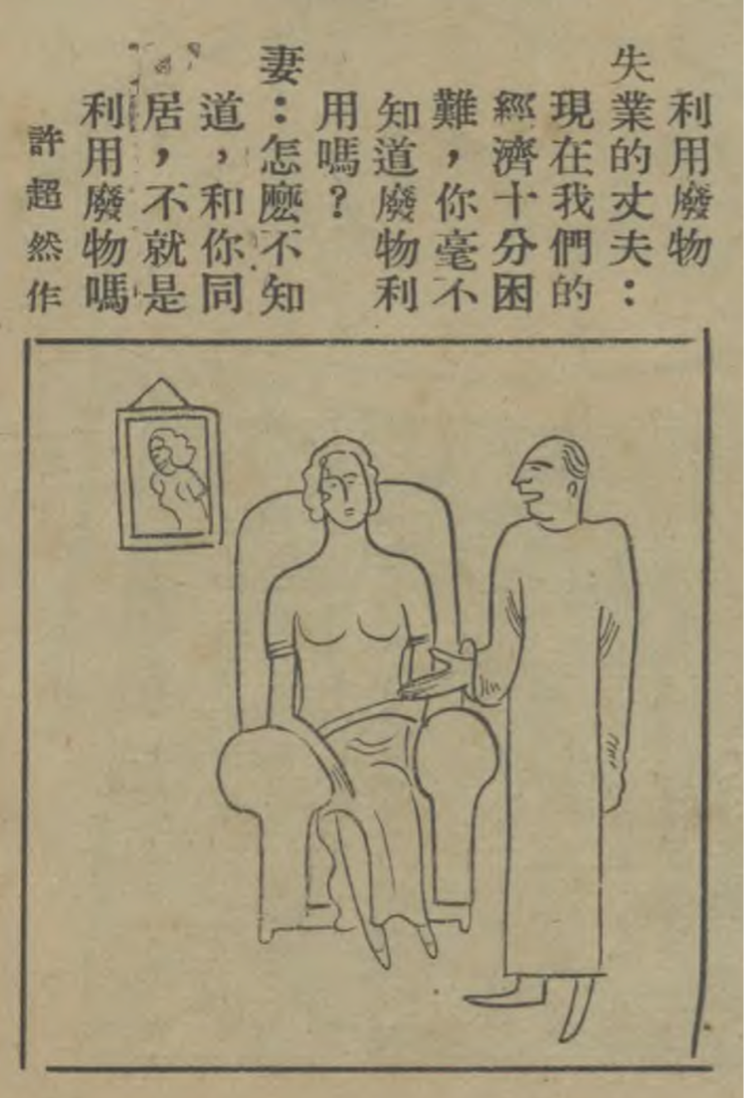
Abstract
This article revisits Xiao Hong’s Field of Life and Death (Shengsi chang 生死場, 1935) and Market Street (Shangshi jie商市街, 1936) against sources from the periodical press to explore how Xiao Hong’s works speak back to discourses on “rubbish” (feiwu 廢物), a slur that was frequently used to refer to disabled people, to people of lower social status, and to women during the Republican period. In particular, I explore how the category of feiwu lays bare processes of marginalisation and dehumanisation, contextualising literary excerpts against New Life Movement slogans, satirical cartoons, and homemaking or hygienist press articles. I show how Xiao Hong’s works build through the category of feiwu a counter-discourse bearing on the representational entanglements of gender, class and disability, as materialised through animals (in Field of Life and Death) and through objects (in Market Street). In doing so, I contribute to a conceptual history of feiwu, and I extend existing scholarship concerned with literary representations of disability in China into the Republican period – a budding subfield that has so far mainly focused on works produced since the foundation of the People’s Republic in 1949.
Image: On Making Use of Rubbish (Xu Zhaoran, 1935)
- Xiao Hong;,
- Market Street,
- Field of Life and Death,
- intersectionality,
- disability,
- gender,
- feiwu,
- waste,
- New Life Movement
